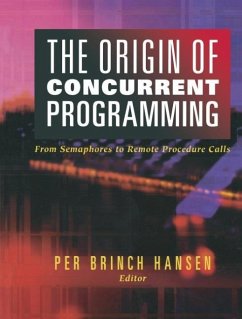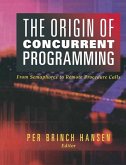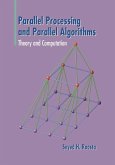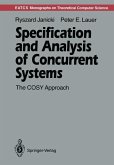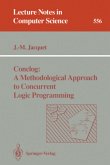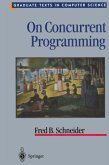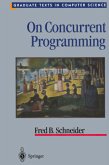An essential reader containing 19 important papers on the invention and early development of concurrent programming and its relevance to computer science and computer engineering. All of them are written by the pioneers in concurrent programming, including Brinch Hansen himself, and have introductions added that summarize the papers and put them in perspective. The editor provides an overview chapter and neatly places all developments in perspective with chapter introductions and expository apparatus. Essential resource for graduates, professionals, and researchers in CS with an interest in concurrent programming principles. A familiarity with operating system principles is assumed. This book is a collection of original papers written by the computer scientists who made the major breakthroughs in concurrent programming. It covers the pioneering era of the field, from the semaphores of the mid 1960s to the remote procedure calls of the late 1970s.
"The Origin of Concurrent Programming" presents 19 seminal papers by E. W. Dijkstra, P. Brinch Hansen, and C. A. R. Hoare.
While focusing on contributions of major and lasting importance, the book:
Features an essay that summarizes the papers and puts them in historical perspective.
Builds on fundamental programming concepts, such as speed independence, fair scheduling, mutual exclusion, deadlock prevention, and process communication.
Covers the invention of programming notation for semaphores, conditional critical regions, monitors, synchronous message communication, and remote procedure calls.
Captures the historic contribution of concurrent programming to our understanding of operating system principles.
Illustrates the use of semaphores, message buffers, and monitors in the systematic design of operating systems.
Describes secure programming languages based on monitors and synchronous message communication.
Includes a bibliography of 160 papers and books on concurrent programming.
Edited by a computer pioneer, "The Origin of Concurrent Programming" is an essential reader on the historic development of concurrent programming. It is an invaluable resource for students, researchers and professionals who are familiar with operating system principles.
"The Origin of Concurrent Programming" presents 19 seminal papers by E. W. Dijkstra, P. Brinch Hansen, and C. A. R. Hoare.
While focusing on contributions of major and lasting importance, the book:
Features an essay that summarizes the papers and puts them in historical perspective.
Builds on fundamental programming concepts, such as speed independence, fair scheduling, mutual exclusion, deadlock prevention, and process communication.
Covers the invention of programming notation for semaphores, conditional critical regions, monitors, synchronous message communication, and remote procedure calls.
Captures the historic contribution of concurrent programming to our understanding of operating system principles.
Illustrates the use of semaphores, message buffers, and monitors in the systematic design of operating systems.
Describes secure programming languages based on monitors and synchronous message communication.
Includes a bibliography of 160 papers and books on concurrent programming.
Edited by a computer pioneer, "The Origin of Concurrent Programming" is an essential reader on the historic development of concurrent programming. It is an invaluable resource for students, researchers and professionals who are familiar with operating system principles.

